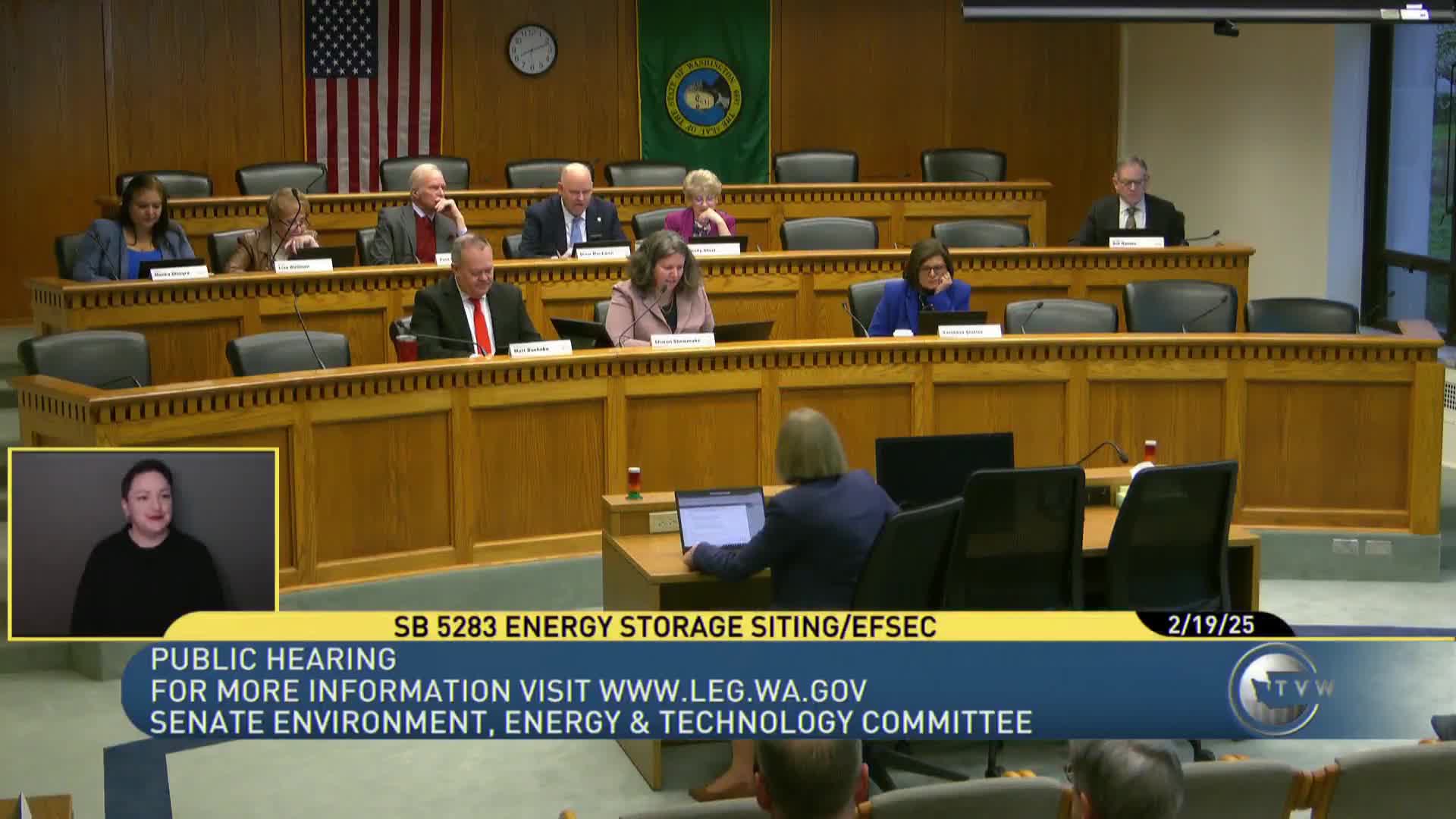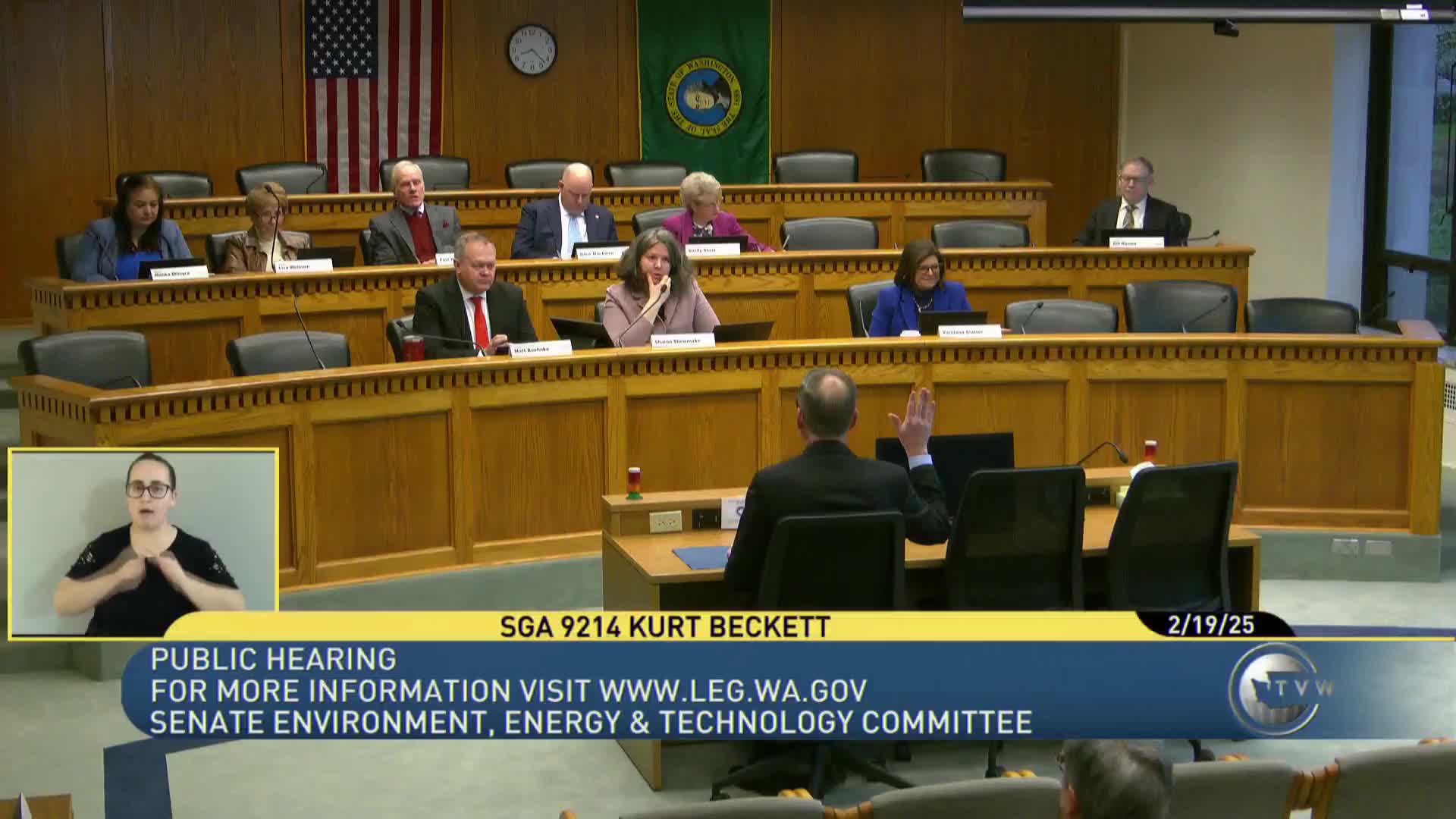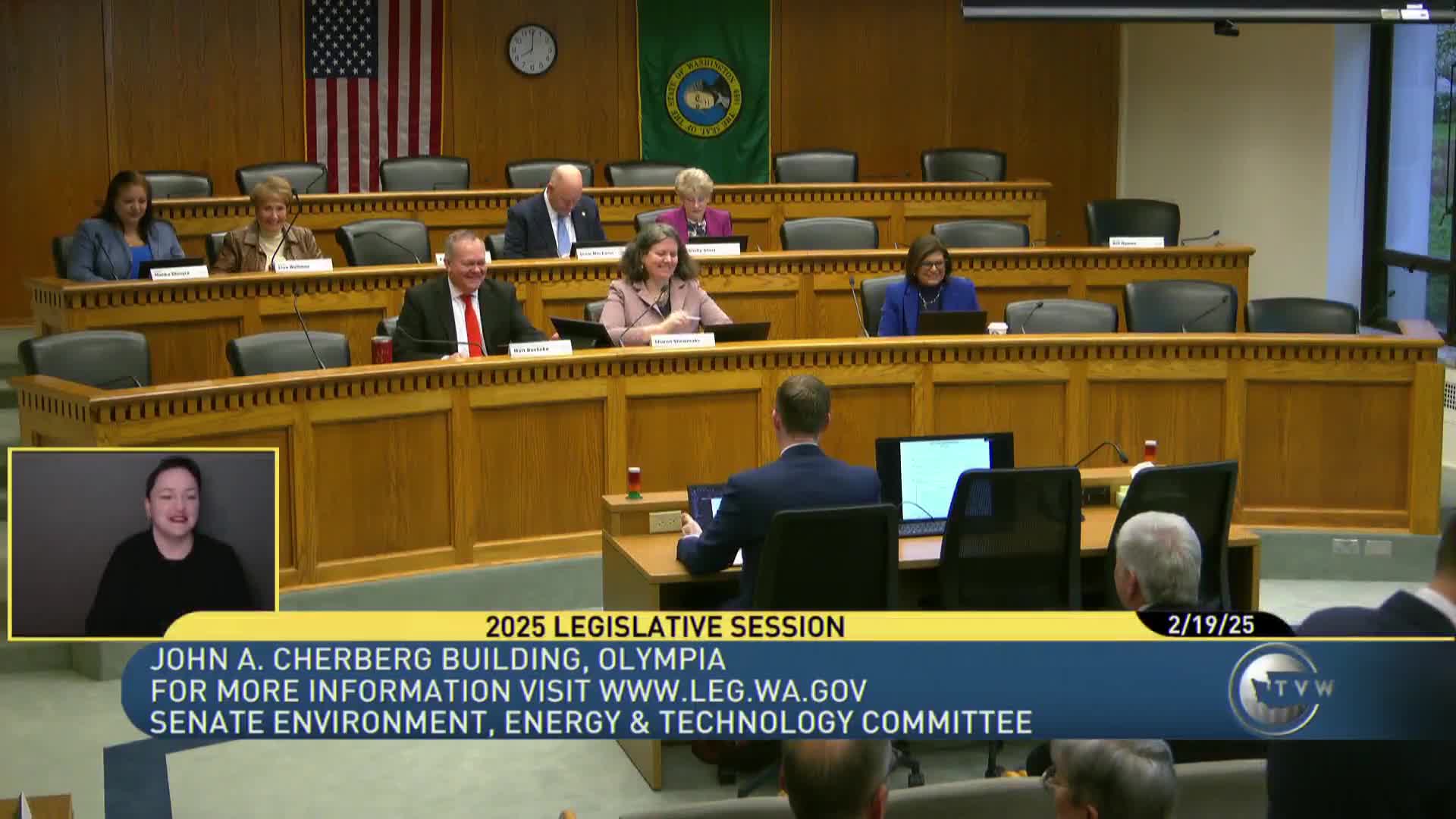Article not found
This article is no longer available. But don't worry—we've gathered other articles that discuss the same topic.

Bill would bar state energy siting council from preempting local bans on battery storage in critical areas; sponsor cites safety and local rights

Senate committee questions nominees for FSEC chair, Ecology director and state CIO on permitting, wildfire and digital modernization

